Welcome to Smugglivus 2013! Throughout this month, we will have daily guests – authors and bloggers alike – looking back at their favorite reads of 2013, and looking forward to events and upcoming books in 2014.
Who: Anne Ursu, author of middle grade fantasy novel (and one of our favorite books of 2013) The Real Boy. We’ve been huge fans of Anne’s ever since Thea discovered Breadcrumbs last year and are thrilled to have her over as a Smugglivus guest!
Give a warm hand to Anne, everyone!
I’m deeply honored to be invited to join the Smugglers for Smugglivus. I have been happily reading the guest posts about all the great books of the year, and I can say without a doubt that this will be the most personally expensive holiday for me of all time.
So, in the true spirit of the holidays it’s time for me to give back.
My Best of 2013
Better Nate Than Ever, by Tim Federle
The title might as well have been Anne Ursu Will Love This Book. This story of a Broadway-obsessed boy whose dreams come calling reads like Noël Streatfeild’s Shoes books retold by David Sedaris. This is one of the funniest books I’ve ever read, but it stands out even more for its emotional acuity. I’m not sure I can think of a character with a bigger heart than Nate Foster.
The Center of Everything by Linda Urban
Linda Urban’s books are perfectly-crafted gems, and her latest, about donuts and wishes and grief and good aim, is no exception. Urban makes her writing look easy, but it’s all so perfectly honed, and so empathetic to the tangled world of childhood. Really, her novels match the plight of her subjects–they come in deceptively small packages that belie the tremendous complexity within. If Linda Urban had been around when I was a kid, I would have slept with her books under my pillow every night
Flora and Ulysses by Kate DiCamillo
I could probably follow you around for a week telling you all the things I love about Kate DiCamillo, and I’m guessing that would get creepy after a while. She gives kids so much credit–this book is philosophical and rich, built with sumptuous words and great love. In this one, Flora, a self-described cynic in need of some magic in her life, ends up the companion and protector of a squirrel who is a newly-anointed superhero, who found his powers after an unfortunate encounter with a vacuum cleaner. The book is delightful, strange, and slyly brilliant. You need a license to do the sort of thing DiCamillo does in this book, and as far as I can tell the only way to get that license is to be Kate DiCamillo.
The Golem and the Jinni, by Helene Wecker
I always get excited when I see anything that looks like fantasy on the shelf with adult literary fiction; having been in kids books for a while I’ve become convinced that most grown-ups are boring and have no imagination at all. And I’m sure countless reviews of this novel go out of their way to assure readers that this is basically historical fiction and good enough to be called literature–but this story of two mythical creatures trying to make their way in the immigrant communities of the Lower East Side does the work of the best fantasy. With great vision, Wecker’s book uses magic to illuminate and provoke. Here’s an adult book smart and inventive enough to be written for children.
Maggot Moon by Sally Gardner
I’m sure the YA-is-too-dark crowd will have a field day with this one if they find it–an achingly bleak alternate history of post-World War II England. But this book is a testament to the depth and audacious ambition of young adult fiction. Every element is impeccably crafted to reinforce the world of the book, even the prose feels heightened and unsettling. And in the bleakness there’s great light and beauty–extraordinary acts of goodness, small and large, in extraordinarily evil times. I finished this and immediately started trawling Twitter trying to find someone who had read it to talk to me about it. Please read it and talk to me about it.
Reality Boy by A.S. King
This is the year I started reading A.S. King–I devoured Ask the Passengers and then promptly went out and read everything else she’s written. Reality Boy might be my favorite of all of them. It’s not an easy read emotionally; King does a masterful job of portraying a boy who is consumed with anger (not to mention making the reader angry for him). The book shows us what happens when we start telling kids who they are at an early age and don’t listen when they tell us otherwise. It’s particularly hard to read this as a mother, though by the end I felt assured that no matter how badly I mess up, it won’t ever be as bad as the parents in this book.
The Year of Shadows by Claire Legrand
It’s so refreshing to see a girl protagonist in middle grade get to be angry. It’s not an emotion girls are allowed much, either in fiction or the real world. To wit, I saw one review of this book that called Legrand’s Olivia unlikable, which made me angry; surely girls get to be more complicated than that.
Best Book of 1950 That I Read This Year
Neil Gaiman’s introduction to Thurber’s book tells readers the book is “probably the best book in the world.” I’m not going to disagree with him. It’s a wonderously strange (or maybe strangely wonderful) fairy tale about an evil duke who spends his days dreaming up impossible and deadly tasks for suitors of his niece, the Princess Saralinda. (“‘We all have flaws,’ the Duke said. ‘Mine is being wicked.'”) There’s no language to describe Thurber’s language here–it’s a little Phantom Tollbooth and a little Mad Hatter and a lot magnificent. Just read it.
Some Books From My Best of 2014 List, So Far
I’m really excited for people to read Nikki Loftin’s Nightingale’s Nest, a contemporary reworking of Hans Christian Andersen’s “The Nightingale.” It’s so beautiful, and Loftin deftly uses the language of fairy tales to show us that life and truth often defy easy explanation.
Steve Brezenoff’s Guy in Real Life uses role-playing games as a lens to view all the role-playing teens must do in real life, and whenever anyone makes comments about YA being facile I plan to beat them over the head with this book. The characters are so distinct, authentic, and deeply-felt; the ideas rich; and the writing a master class onto itself. And I can safely say it has the best chapter I’ve ever read told from the point-of-view of an orc.
I cannot wait for people to start talking about Christine Heppermann’s Poisoned Apples, a wickedly smart poetry collection that weaves together strands of fairy tales, girls, and body image. The poems I’ve read are startlingly great, and I think this book has the potential to change conversations.
Thank you, Anne!


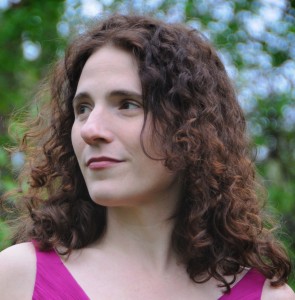
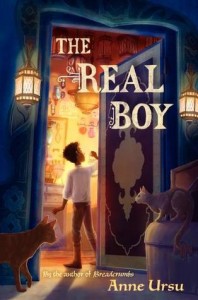
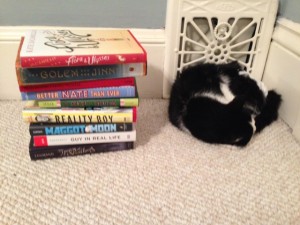
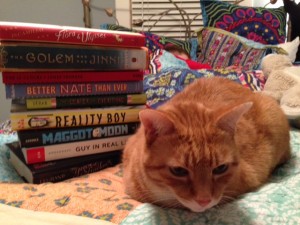
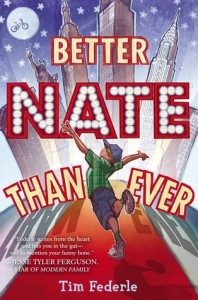
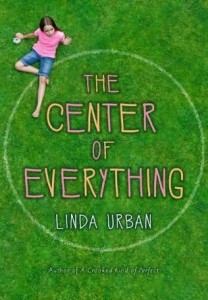
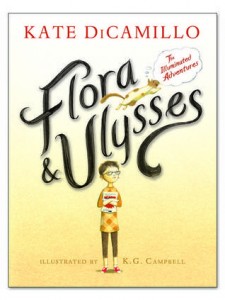
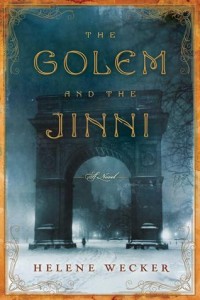
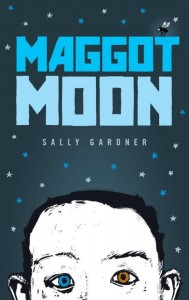
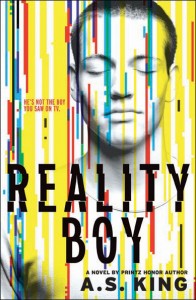
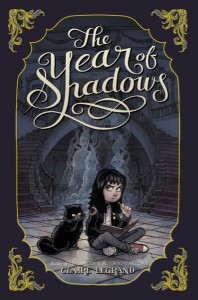
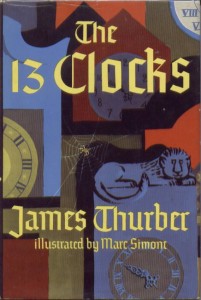
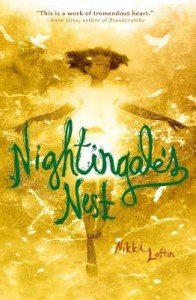
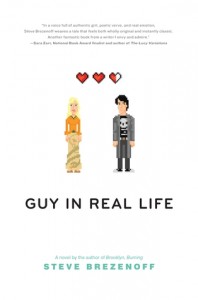










7 Comments
Gerd D.
December 16, 2013 at 2:13 pm“With great vision, Wecker’s book uses magic to illuminate and provoke. Here’s an adult book smart and inventive enough to be written for children.”
Best review ever. 😀
Unfortunately I only now the audio book, and didn’t get very far with that, which wasn’t due to any fault in the writing, or the narrator for that, but simply because I found that I can’t concentrate on a story when it’s being read to me… well, I do have the book scheduled for a read sometime in ’14.
Amalia
December 16, 2013 at 4:52 pmOh my goodness. I thought no one else in this century knew & loved The Thirteen Clocks.
golu dolls
July 18, 2017 at 1:40 pmgolu dolls